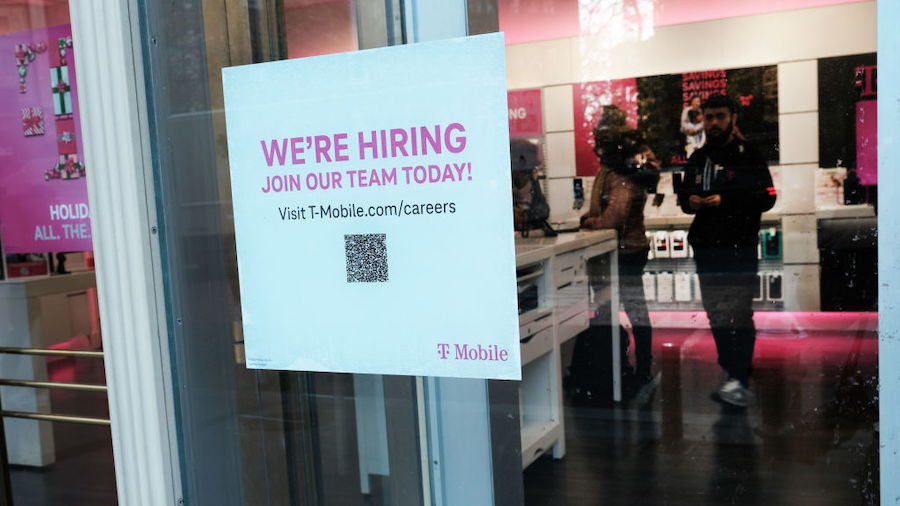CONSUMER
For gig economy workers in these states, rights are at risk
Mar 14, 2018, 1:27 PM | Updated: Feb 7, 2023, 11:21 am

Should gig economy workers, such as Uber drivers and Taskrabbits, be entitled to the same rights and benefits as regular employees?
(CNN Money) — Should gig economy workers, such as Uber drivers and Taskrabbits, be entitled to the same rights and benefits as regular employees?
Currently they aren’t. And many of the online apps and platforms that offer the goods and services these workers provide would like to keep it that way. That frees these companies from having to offer benefits, pay a host of taxes and abide by certain labor laws.
Leading the charge is New York-based Handy, an online platform that connects users with home service providers ranging from plumbers to house cleaners. The company has put bills in front of eight state legislatures this year that would permanently classify most gig workers as independent contractors. All eight bills have passed at least the house or senate in each state and appear likely to be signed into law soon.
Defining gig workers as independent contractors will give platform companies the certainty that their business model will hold up to legal scrutiny, Handy argues.
Over the years, many platform companies — including Handy — have been sued for allegedly misclassifying workers as independent contractors. The legal outcomes have been mixed, with many cases settling before a verdict was reached, or awaiting a Supreme Court decision on whether the arbitration agreements most workers signed can be enforced.
The state laws would prevent such lawsuits in the future by wiping away many of the criteria that usually establish an employer-employee relationship. But labor advocates worry the laws will erode the benefits and protections to which workers should be entitled.
Related: Top court: Uber should be regulated like a taxi company
Currently, the distinction between a contractor and an employee hinges on the idea of control. Telling a worker when and how to perform a job, providing training or supplies, monitoring their activity and determining the rate of pay are all factors that would support a finding that the worker is an employee.
The laws Handy is trying to get passed by the states would enable employers to do many of those things without having to call the worker an employee. That frees them from having to pay workers’ compensation premiums and unemployment taxes or obeying state anti-discrimination and minimum wage laws. They’ll likely be off the hook for federal labor standards and Medicare and Social Security taxes as well, since federal enforcement is sparse.
“They’ll be able to set wage rates, they’ll be able to discipline workers, they’ll be able to fire workers, they’ll be able to monitor workers,” explains Rebecca Smith, deputy director of the National Employment Law Project, a nonprofit worker advocacy group. “Almost everything that makes you an employer under current law, and that other employers abide by, is thrown out the window.”
In previous years, Uber has won similar laws in many states that apply only to “transportation network companies,” principally itself and Lyft. Handy’s bills would apply to any kind of marketplace contractor, with a few exceptions carved out in certain states.
Derek Christian, the Cincinnati-based co-owner of a maid service and a handyman service, said the bills will lead existing employers to convert to a lower-cost independent contractor model in order to compete.
“It won’t just be Handy, it’ll be all of these virtual companies that are out there now,” Christian said. That can be a raw deal for workers, who might be drawn in by a slightly higher hourly rate but then realize they will have to cover their equipment, transportation, insurance and self-employment taxes, he said.
(On its website, Handy says that it pays cleaners “up to” $22 an hour and allows them to negotiate payments. But further down in the employment contract, it lists the fees it charges if the service provider cancels on short notice or doesn’t show up.)
Related: Court says Uber must give its U.K. drivers more rights
In blue states, gig economy companies have offered to provide benefits to their workers, but there’s a catch. Handy pushed a bill in New York that would have allowed platforms to contribute 2.5% of each transaction to a benefits fund in exchange for a guarantee that the workers would remain independent contractors.
Unions and worker advocacy groups opposed the measure, saying it gave away too many rights and protections for workers. Similar “portable benefits” bills are currently under consideration in Washington and New Jersey, but Handy decided to move on to friendlier territory: The mostly-Republican states of Georgia, Indiana, Utah, Kentucky, Tennessee, Florida, Iowa, and Colorado.
“If starting with the harder states failed, we’re taking a shot at something’s that a little faster,” said venture capitalist and political strategist Bradley Tusk, whose firm Tusk Ventures ran Uber’s state legislative campaign and now represents Handy. “What is ultimately a better business decision? To try to change the law in a way that you think works for your platform, or to make sure your platform fits into the existing law?”
The bills have been particularly alarming for the National Domestic Workers Alliance, a national nonprofit advocacy group. Palak Shah, the organization’s director of social innovations, recently went to Tennessee to caution lawmakers that the bill would permanently carve many workers out of rights to which they would be entitled as employees.
“It’s just such a sorry excuse for a business model to make vulnerable workers more vulnerable just so you can tell your investors that one day you might be solvent,” Shah said. “This legislation basically ensures that domestic workers online will never have protection.”
Some of the bills faced resistance from organized labor, but most were offered in states where unions have been weakened in recent years by right-to-work laws and Republican electoral victories, so unions only had enough leverage to ask for small changes.
Related: 5 things every gig worker should know
One thing is clear: The federal government likely won’t stand in the way of Handy’s march through the states.
Under the Obama administration, the Department of Labor pursued dozens of cases against companies that misclassified their employees as independent contractors, and issued extensive guidance outlining the distinction between the two.
Trump’s pick for Labor Secretary, Alex Acosta, withdrew that guidance. And at a recent Chamber of Commerce event marketing the launch of a “new economy working group,” Acosta celebrated platform companies for creating a new class of independent “entrepreneurs,” and said the laws should change with the times.
“Our labor laws and regulations were designed in the era of time cards and pneumatic tools,” Acosta said. “In so many areas we’ve updated them, but we haven’t when it comes to this.”
The-CNN-Wire
™ & © 2018 Cable News Network, Inc., a Time Warner Company. All rights reserved.












